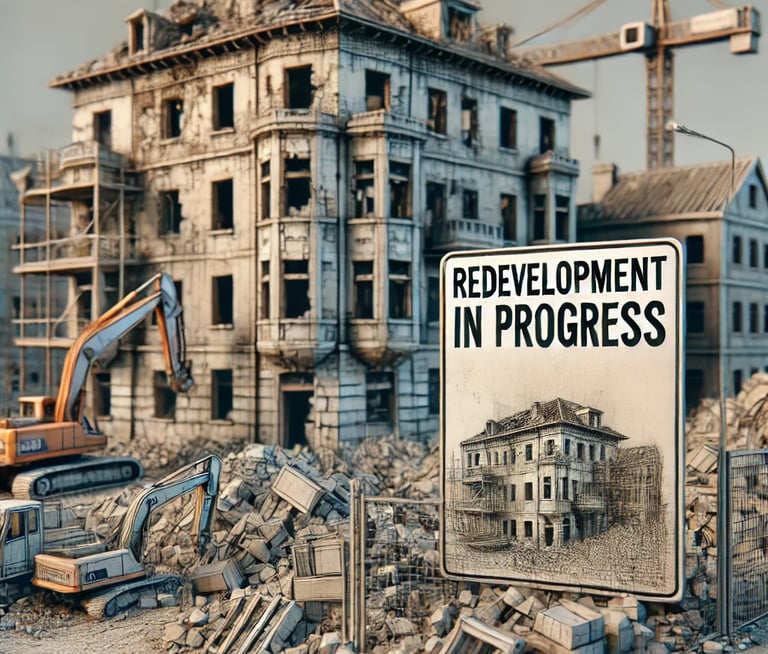Bombay High Court’s Landmark Judgment: A Blow to Frivolous Litigations in Redevelopment Cases
Vohra Developers Pvt. Ltd.
12/10/20242 min read


Introduction
In a recent landmark judgment, the Bombay High Court set a firm precedent against the misuse of legal processes to delay redevelopment projects. The case, involving an 84-year-old building in Kandivli (West), has highlighted the rising issue of frivolous petitions filed to obstruct redevelopment, often for ulterior motives. By dismissing the tenant’s plea with a penalty of Rs 5 lakh, the court has sent a strong message to deter similar behavior in the future.
The Case in Brief
The petitioner, Khimjibhai Patadia, challenged an eviction notice issued after the building, Bubna Bungalow, was declared dangerous and dilapidated by the Technical Advisory Committee (TAC) of the Brihanmumbai Municipal Corporation (BMC). The structure, built in 1940, had been assessed as unfit for habitation, warranting immediate demolition and redevelopment. Despite six out of seven tenants vacating, Patadia resisted, alleging that the landlord was using devious means to evict him. The Bombay High Court, however, found the petition baseless and dismissed it, imposing an exemplary cost.
Key Observations by the Court
The division bench of Justice A S Gadkari and Justice Kamal Khata made several notable observations:
1. Frivolous Litigation as Extortion: The court noted a disturbing trend where tenants use litigation to extract undue benefits from landlords or developers, describing it as a "sophisticated form of extortion."
2. Tenants’ Rights vs. Landlords’ Obligations: While acknowledging that landlords and developers can take undue advantage of uninformed tenants, the court emphasized that tenants must not misuse legal protections to obstruct redevelopment projects unnecessarily.
3. Judicial Process Misuse: The judgment criticized the growing tendency of filing writ petitions as a calculated gamble to delay redevelopment projects with minimal risk to tenants.
4. Checks and Balances: The establishment of TACs ensures impartial assessments of buildings’ conditions, serving as an effective safeguard against arbitrary decisions.
Implications for the Future:
This judgment sets a precedent that will likely influence future cases involving redevelopment disputes. It underscores the need for tenants and landlords to engage constructively rather than resorting to prolonged litigation. Additionally, it highlights the judiciary’s intolerance for attempts to exploit the legal process for personal gain.
Conclusion:
We, at Vohra Developers Pvt. Ltd. laud this verdict and feel that The Bombay High Court’s judgment is a wake-up call for those misusing the judiciary to stall redevelopment projects. As Mumbai continues to evolve, such rulings will play a crucial role in ensuring that redevelopment projects progress efficiently, benefiting both residents and the city at large.
Vohra Developers Pvt. Ltd.
"Where innovation, quality, and trust come together."
